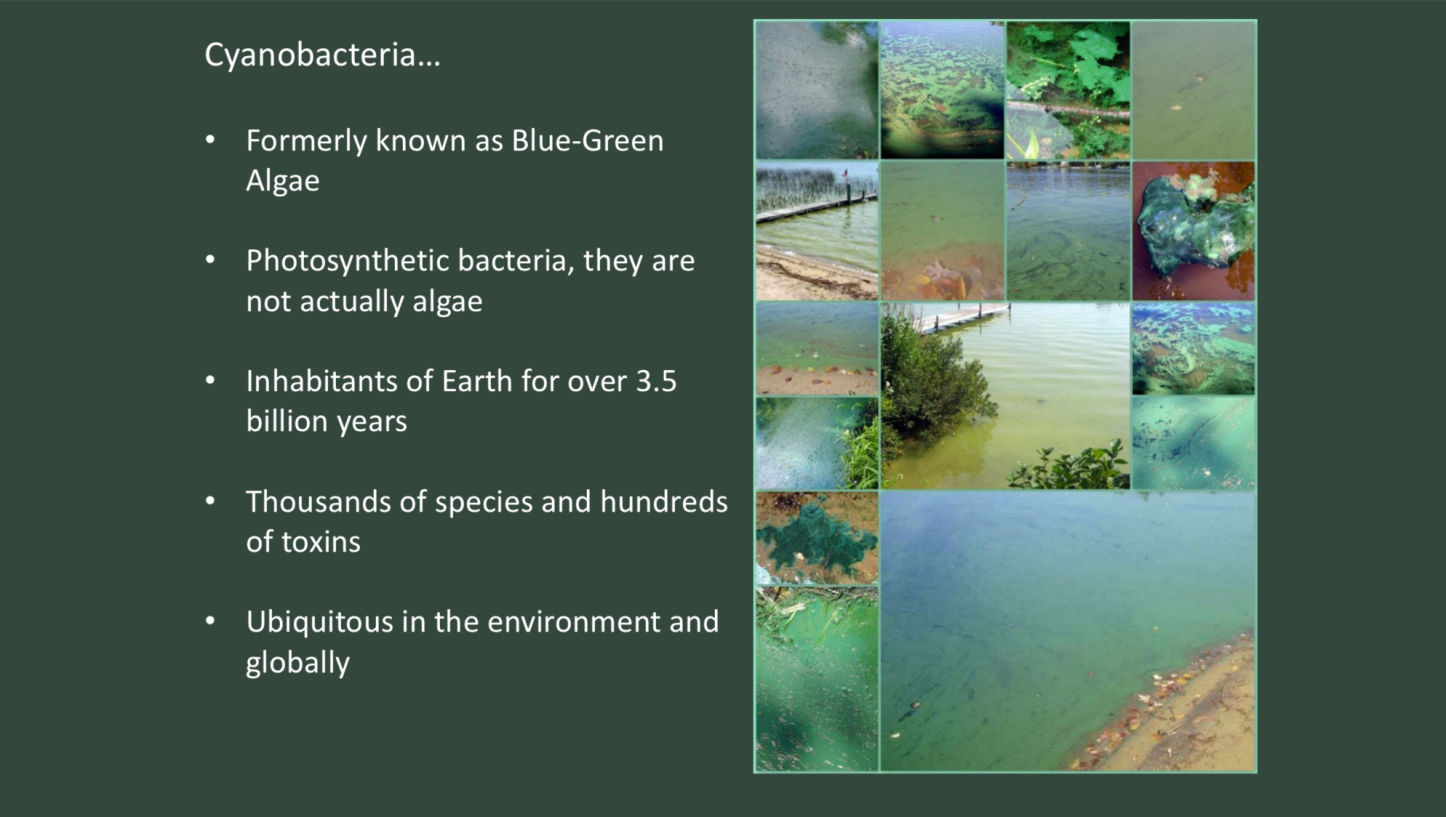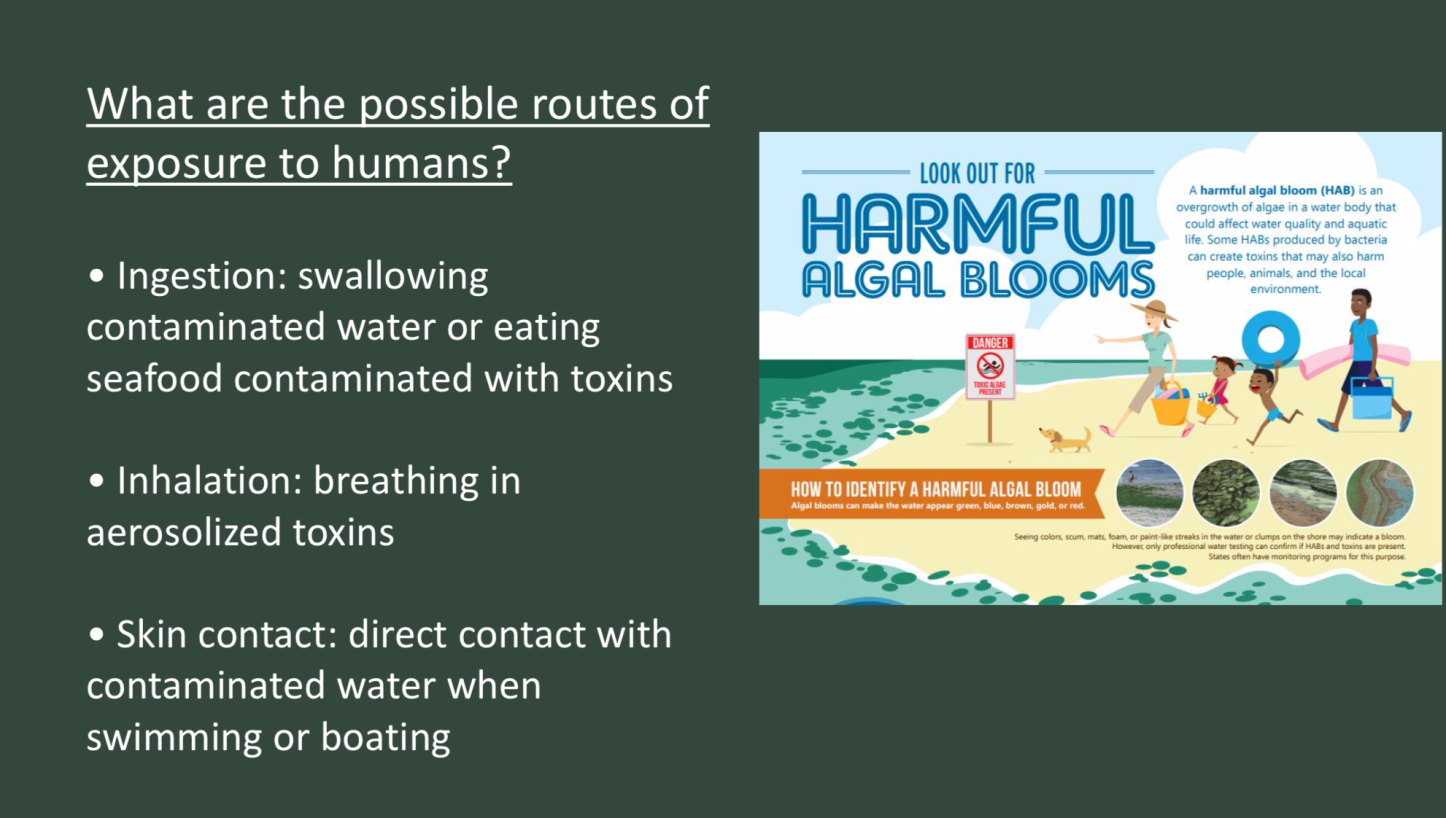
Learn more about Milton Three Ponds
-
Since 2015, TPPA, along with NH DES, ME DEP, and the Towns of Milton, NH and Lebanon ME, have been working to control and eradicate the invasive aquatic plant known as European Naiad (Najas minor), also known as Brittle Waternymph, and Brittle Naiad.
Learn More
The New Hampshire Department of Environmental Service has crafted a Long-Term Brittle Naiad (aka European Naiad) Management Plan. The document is long but has excellent information about our battle with this invasive plant.
Long-Term Brittle Naiad Management Plan -
Cyanobacteria in New Hampshire Waters – The Next Major Potential Threat to Milton Three Ponds
In June 2021, there was a small cyanobacteria bloom reported along Lakeside Drive on Northeast Pond. This was the first confirmed bloom reported to TPPA. At that time cell counts did not exceed state limits, however since then, additional blooms have been reported. An “alert” was issued by the state in June 2023, and a “warning” was issued due to unsafe higher cell counts in June 2024. Thankfully the blooms have been localized in specific areas along the NH side of Northeast Pond and at the start of the channel in the river. They typically dissipated within a day or two, resulting in a minor disruption to area residents’ recreational activities.
Cyanobacteria (formerly known as blue-green algae) are photosynthetic bacteria that naturally occur in most of our water bodies in New Hampshire, generally at numbers near the minimum level of detection. Some species of cyanobacteria grow in colonies to form surface water “blooms.” Blooms can occur when conditions of warm water temperatures coincide with increased nutrients (from storm water run-off, fertilizers, pet waste, etc.) in the water column. Not only are cyanobacteria blooms considered aesthetically displeasing, but they also contain toxins that are harmful to humans, domestic animals, and aquatic life and should be reported to NH DES on the NH side of the ponds and ME DEP on the Maine side and avoided until the area is cleared.
The following selected slides from the NH Department of Environmental Services will help explain why cyanobacteria is a concern and how to report a potential bloom:
Boat Inspections
TPPA supports the Courtesy Boat Inspection Program at Milton Town Beach, New Bridge Marina and Jellystone Campground. This voluntary program takes only a few minutes and helps to keep the Ponds clean by stopping the unnecessary spread of additional invasive plants and animals both into and out of our Ponds. We ask for your cooperation with these inspections.
-
The information below is a great guide for shoreland owners who want to improve their property, especially their waterfront.
New Hampshire Homeowner’s Guide to Stormwater ManagementSee brochures in Milton’s MS4 Initiatives below.
-
Info only available in season
-
What Is an MS4 Permit and Why Milton?
MS4: Municipal Separate Storm/Sewer System
Local drainage systems, whether natural or constructed, are important features that generally carry stormwater runoff away from developed areas to undeveloped areas, waterbodies, and wetlands. Although these drainage systems help to manage stormwater in our developed environment, they are also a primary source of untreated pollutants in our Ponds, which include bacteria, fertilizer, pet waste, oil, trash, and many other pollutants. These untreated pollutants in stormwater runoff are defined by the U.S. Environmental Protection Agency (EPA) as “nonpoint source pollution”, meaning that the source of the pollution is not directly attributable to a single spatial point or polluter. Stormwater runoff from streets, parking lots, and lawns picks up and carries contaminants as it moves across the ground surface before entering into local drainage systems.A municipal separate storm sewer system (MS4) includes the stormwater collection, conveyance, and outfall structures within a city or town. These structures include (but are not limited to) catch basins, drain manholes, culverts, stormwater basins, and swales. As with approximately sixty other municipalities in NH, the Town of Milton’s MS4 is regulated under the EPA Clean Water Act (CWA) and requires a permit for discharges to the environment.
These educational brochures have been developed by NHDES, UNH Cooperative Extension, and the USEPA and that they have been adapted for the Town of Milton to help inform the community about best practices relating to water-quality and the management of storm-water runoff.
The following handouts/brochures can be downloaded and printed:





